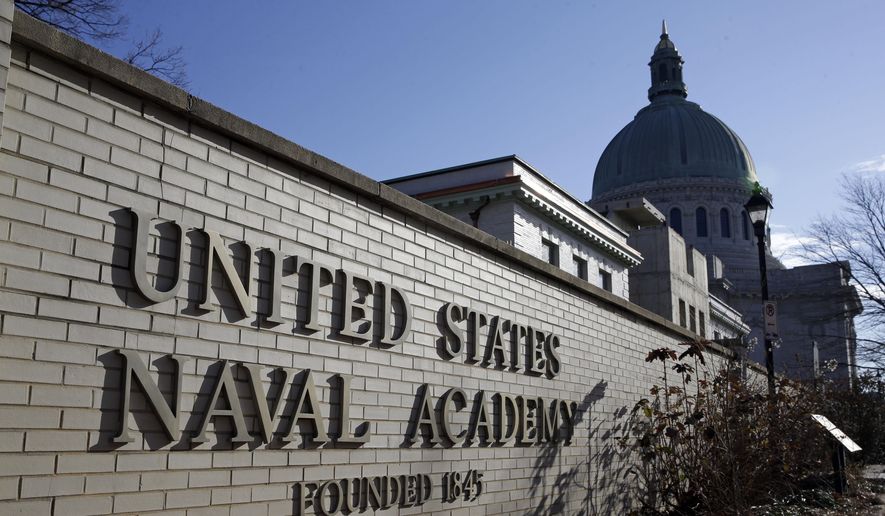The names of Robert E. Lee and other Confederate officers should be stripped from memorials and buildings at West Point and the U.S. Naval Academy, according to a just-released report of the Naming Commission established by Congress that had earlier recommended similar steps at several Army posts.
Lee was a cadet and later the superintendent at the U.S. Military Academy during his 30-year U.S. Army career. He resigned to command the Confederate Army before finally surrendering to the Union Army’s Gen. Ulysses S. Grant in 1865.
“Lee’s armies were responsible for the deaths of more United States soldiers than practically any other enemy in our nation’s history,” the Naming Commission stated in its second report to Congress.
The Virginian’s name can be found on several buildings at West Point, including Lee Barracks — where cadets are housed — and a daycare center on post. A portrait of Lee in his Confederate uniform hangs in Jefferson Hall, the West Point library.
“The commissioners do not make these recommendations with any intention of ‘erasing history,’” the report said. “The facts of the past remain and the commissioners are confident the history of the Civil War will continue to be taught at all service academies with all the quality and complex detail our national past deserves.”
While the biggest changes would occur at West Point, the U.S. Naval Academy in Annapolis also would be affected. Confederate-linked buildings there include Buchanan House, the superintendent’s official residence, and Maury Hall which today houses the naval academy’s Systems and Weapons Engineering Department.
Franklin Buchanan left a long career in the U.S. Navy upon being appointed an admiral in the Confederate Navy. Matthew Maury was one of the nation’s foremost oceanographers before the Civil War, but later sought European recognition of the Confederacy as a lobbyist.
The Naming Commission said its recommendations to Congress are meant to affirm the “long tradition” of educating future military leaders to “represent the best of our national ideals.”
“Cadets of the present who devote their lives to national service should do so in an environment and setting that honors the greatest examples, traditions and leaders of our past,” the report to Congress stated.
The report noted that about 20% of the cadets at West Point resigned their commissions to serve the South, a “substantially” higher percentage than at civilian universities such as Harvard and Columbia. It also said that, like many other monuments, the move to commemorate Confederate came not after the Civil War but decades later with the advent of the segregationist Jim Crow era.
” Although the Civil War ended in 1865, no Confederate leader was invited to West Point until 1898,” the report noted. “For more than 60 years after the war’s end and well into the 20th century, no Confederate monuments existed at [West Point]. Attempts to establish them were consistently met with solid resistance.”
The panel estimated that making the changes would cost about $424,000 at West Point and $27,000 at the Naval Academy.
• Mike Glenn can be reached at mglenn@washingtontimes.com.




Please read our comment policy before commenting.